Complete nutrition guide for vegan athletes
vegan nutrition guide for athletes - Vegan athlete meal plan - High protein plant based plan - Everything you shold to know about the plant-based diet for athletes.high-protein meals
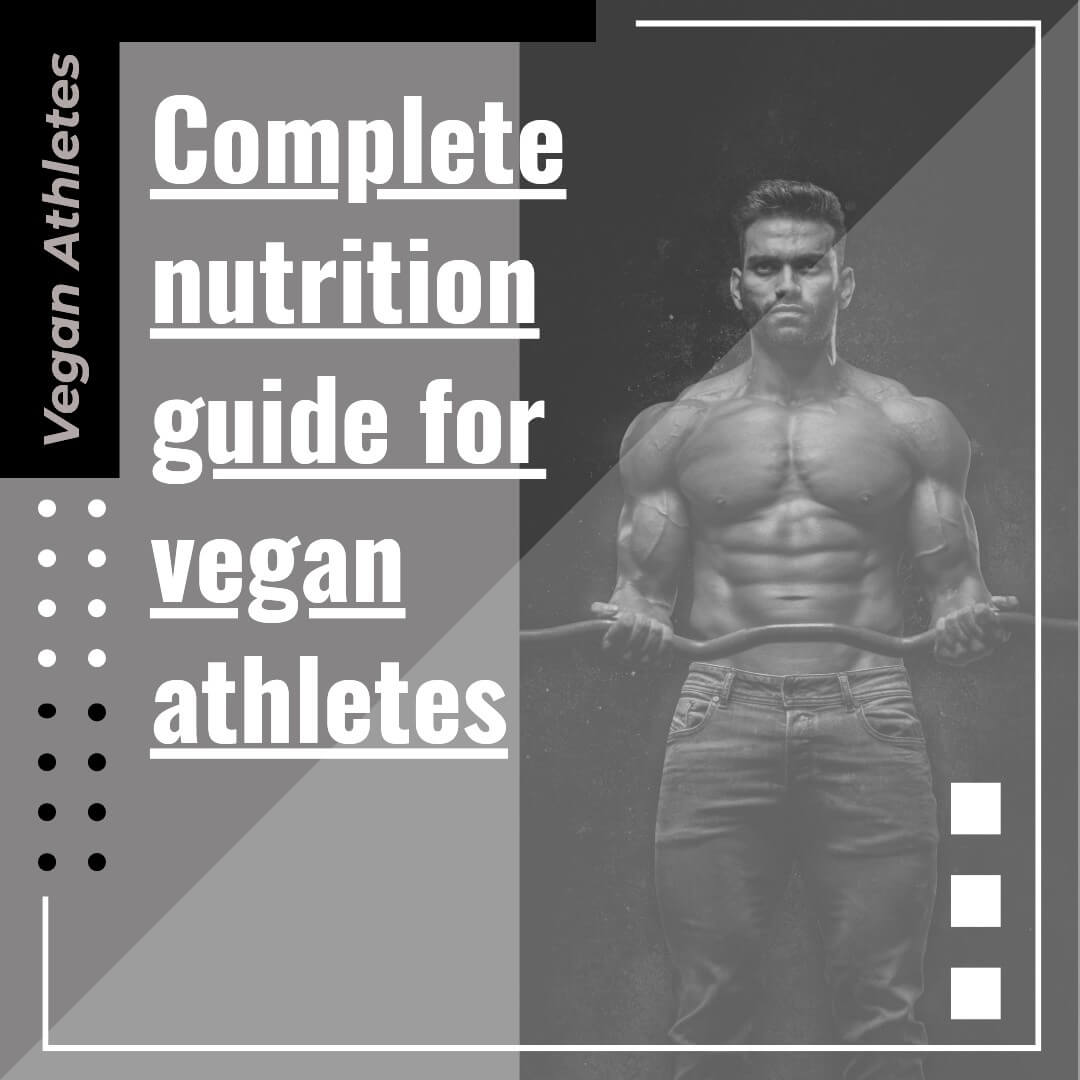
Specialists worldwide have been researching and found that you must obtain a certain amount of nutrition and minerals daily to function fully. However, they did specify the terms and ingredients you must use.
And one of the interesting facts that I figured from these researches is that in most cases, you can get all of the nutrition and other equipment that your body needs from plant-based food, and there is no obligation to eat meat.
This brings us to the matter of veganism and vegan diets, especially for athletes; in this statement, I will tell you all about some of the exceptional nutrition you would need daily as a vegan athlete.
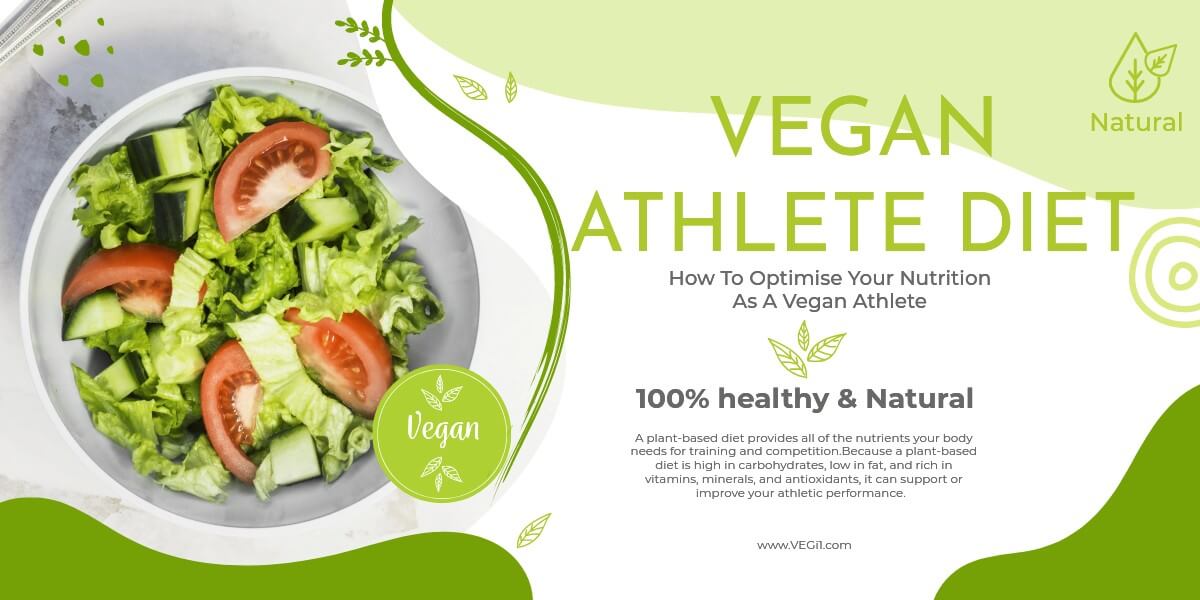
I’m Sara, and I chose the vegan lifestyle for my family and me around seven years ago; since I care about the well-being of my children, this was one of the best decisions I have ever made.
I will tell you about the foods that vegan athletes must consume and how much they need to finish.
And besides, we will talk about the fact that some decent evidence shows vegan athletes can perform way better; now, let’s get to the article and explore the fantastic world of veganism.
Do you want to know famous vegan athletes?
In this article you will read:
Veganism & being an athlete
One of the most significant controversies I have seen is that athletes who consume meat and want to go vegan doubt because they think that vegan food would mess with their hormones or affect their performance destructively.
Today I have gathered some information that shows the exact opposite so stay with me on this.
Being vegan means avoiding any product, whether consumable or wearable, from animals or animals involved in these products.
For instance, you have to avoid milk, meat, and even eggs, and you must also not use products that have been involved with animals, such as wool sweaters and even makeup.
There is a decent reason behind this fact, companies and industries that use animal cruelty to raise their products should be shut down, and besides, we have to avoid eating animals just because we can.
In other words, their life isn’t ours to take whenever we want.
So vegans prefer to use vegan products and food, such as soy for meat and almond milk for cow milk.
However, when we get to veganism and athletes, things are a tad different, especially among athletes that are on heavy-duty sports.
I have discovered that 75% of vegan athletes can perform 80% better than those who consume meat and animal products.
The reason is that animal-based products contain microbes and some germs that cannot be eliminated even when cooking. In the long term, you will encounter side effects like heart deficiency, high blood sugar, and pressure and nerve system disorders.
As you can see, eating animal products might seem fine at first, but as time passes, everything changes, and you easily fall from the heights of success.
There have been hundreds of other researches in this area, and all of them suggest the same thing that a vegan diet for athletes is the best option that they can adopt.
Read the complete guide to a plant-based diet for athletes here :
In the next section, I want to tell you about all the nutrition and minerals that an athlete needs to perform their best, and also, we will notify you about the number of items that these athletes would need.
So come with me, and let’s get to the next step.
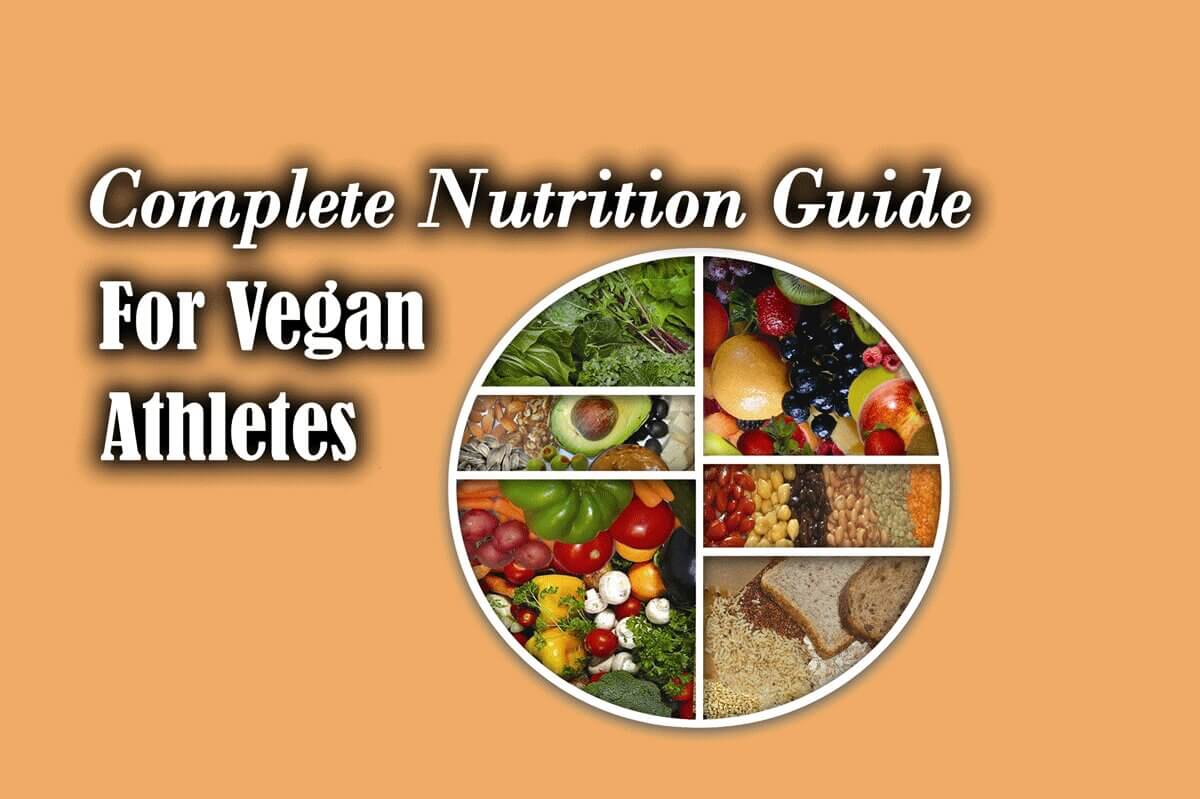
The Ultimate Guide to Feeding Vegan Athletes
The first matter that I would like to talk about is the three main categories that vegan athletes have to consider when looking for a decent die; these three categories are:
1. Carbohydrates
2. Fats
3. Proteins & Keratin
These three are the critical parts of a diet for athletes; this same logic goes for a vegan athlete’s diet.
Further, in the article, I want to discuss every category separately, but before getting started, keep in mind that vegan athletes need the same things non-vegan athletes need. Still, the only difference is the source they acquire it from.
Carbohydrates
The first category we have to discuss is the fact of carbohydrates.
The primary fuel for high-performance sports events and exercises is carbohydrates; this great substance is present in many products with meat or animal essence.
However, today I want to tell you all about the vegan athlete carbohydrate resources on the market that you can get. I assure you that consuming these would give you the energy to lift even the heaviest dumbbells.
1. beetroot
2. corn
3. quinoa
4. brown rice
5. oats
6. bananas
7. apples
8. mangoes
9. dates
10. raisins
11. goji berries
12. kidney beans
13. garbanzo beans
These are some of the sources from that you can obtain carbs as a vegan athlete; keep in mind that you only have to use up to 15-25 grams of carbs every day, for instance, eating two apples or half mango.
This number can differ based on your BMI; for every 1000 grams of muscle you grow, you must add 5 grams of carbs to the diet.
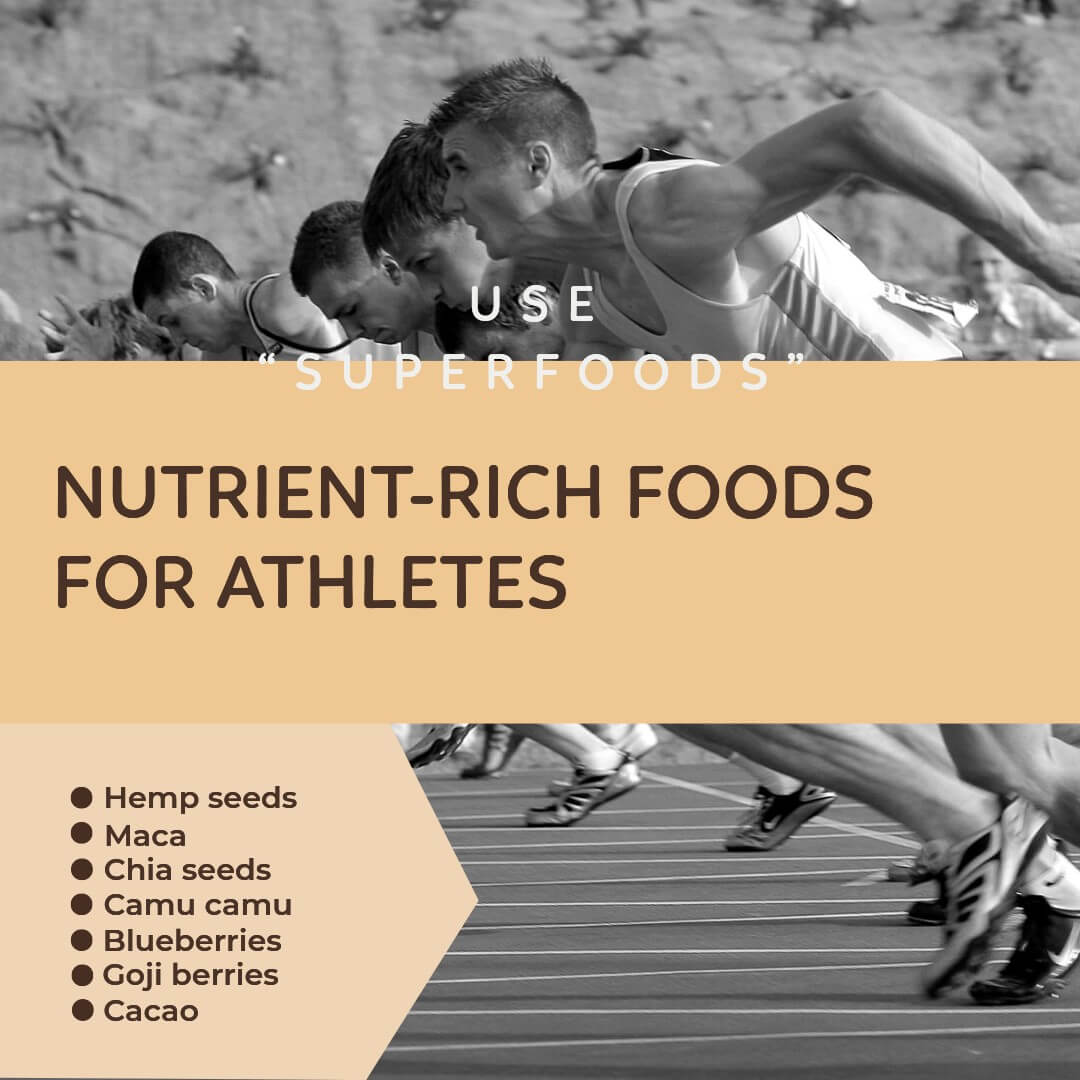
Fats
Unlike the last one, fats are a complex matter.
While you can easily find fats in plant-based food, the fat type also matters.
Fats are divided into four sections:
· saturated fat
· Trans fat
· Monounsaturated fat
· Polyunsaturated fat
These four are the facts that I have been telling you about and now let’s see what the sources for these fats that you can get from plant-based food as a vegan athlete are:
1. Nuts
2. Seeds
3. Avocado
4. Olives
5. Coconut
6. Soy
7. Oats
8. Chocolate or cocoa powder
These are the facts you will need, and by eating these consumables only, you will guarantee that no animal is harmed in making that food, and the wood itself will be at least 75% healthier than regular animal-based food.
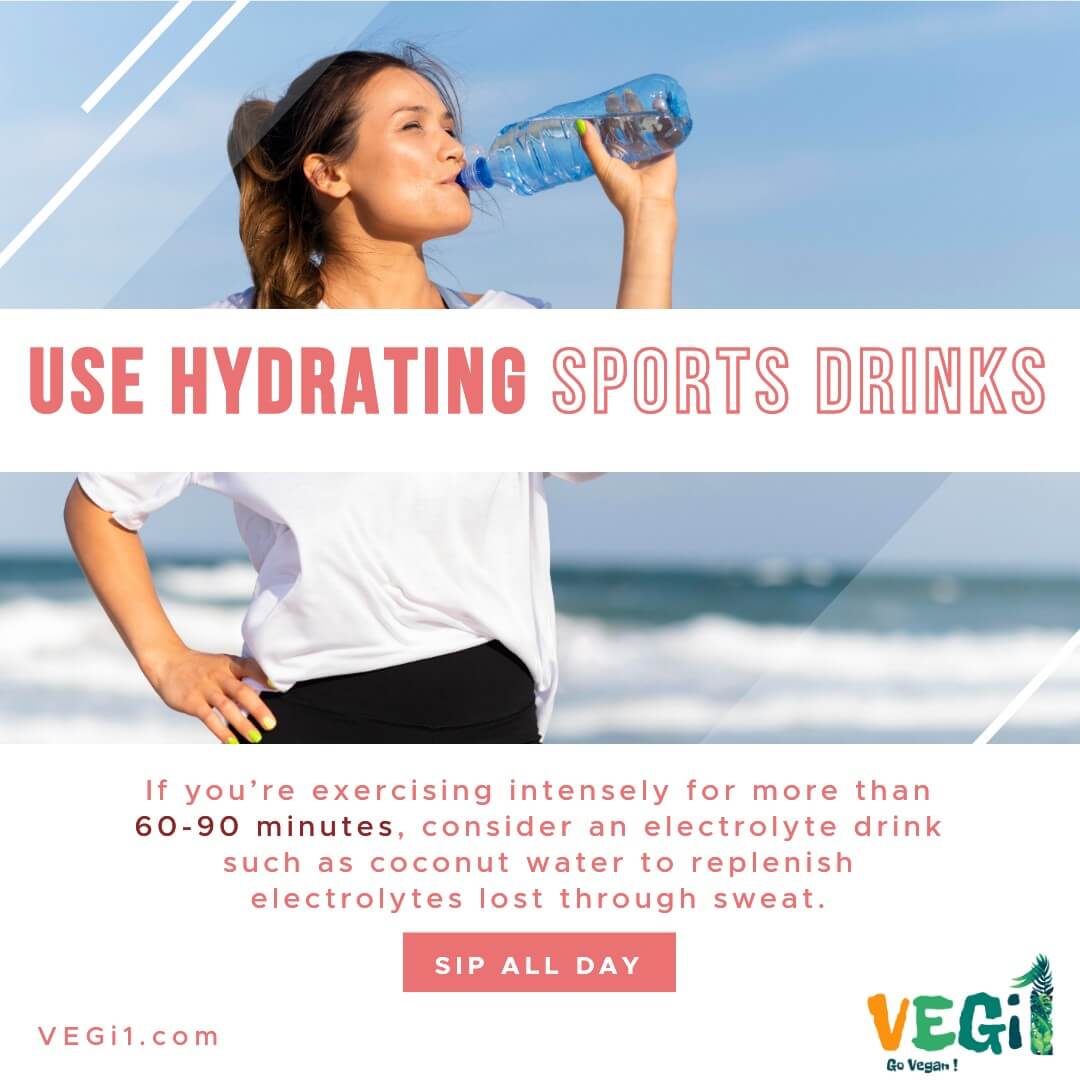
Protein
On the other hand, proteins will keep your stamina up and help your body develop physically and mentally. Usually, protein gets consumed via eggs and sometimes meat, especially when talking about keratin.
Now let me tell you about the rich sources of protein and keratin in plant-based food:
1. Seitan
2. Tofu
3. Tempeh
4. Edamame
5. Lentils
6. Beans
7. Nutritional yeast
8. Spelt and teff
9. Hemp seeds
10. Green peas
When it comes to plant-based proteins, you have to know that they are different; let me elaborate.
These proteins are made from chains famous as amino acids; the human body usually produces some of this amino on default; however, some have to be consumed externally.
Animal-based protein has most of the proteins that the body produces itself, but plant-based proteins are focused on the amino that the human body cannot make on its own; in conclusion, I have to say that plant-based protein has a much better impact on your body than the animal one.
The perfect vegan diets
The perfect vegan athlete diet combines all these foods, meaning you must consume all the ingredients your body needs to perform your best.
Let’s see what foods and nutrition are needed for athletes.
Besides all of the examples that I have listed above, you will need some additional items as well, such as:
Vitamins:
1. Vitamin A
2. Vitamin D
3. Vitamin E
4. Vitamin K
5. Vitamin B-1
6. Vitamin B-12
7. Vitamin B-5
8. Vitamin B-2
9. Vitamin B9
These vitamins are exclusive; for instance, the Vitamin B family specializes in the nerve system, and the A series is for energy and your skin.
Overall, these vitamins can be consumed via fruits and oats alone.
Minerals:
1. magnesium
2. calcium
3. phosphorus
4. sulfur
5. sodium
6. potassium
7. chloride
8. iron
9. selenium
10. zinc
11. manganese
12. chromium
13. copper
14. iodine
15. fluoride
16. molybdenum
Minerals also significantly affect your endurance, especially when performing a high-intensity sport.
So you have to keep in mind that you should at least consume 15mil grams of these minerals daily to maintain your health.
As you can see, the materials you have to consume daily as a vegan athlete are complex; however, you can always use the instruction I give you to balance and find the Vegan Diet for the Ultra-Athlete.
Keep in mind that all the items I have listed in this document can be found in vegan or plant-based food.
Now let’s get to the next section, in which I will present some interesting facts.
Nutrition Tips for Vegan Athletes
In this article section, I would like to tell you some tips and tricks you can use to have the best Plant-Based Diet for Athletes.
1. First, you have to keep in mind that overeating one nutrition can cause harm to your body, and this is because of the origin of the nutrition and not the resource, so keeps your intake balanced.
2. The second fact is that you can always combine some of the nutrition resources we have listed and make the most incredible meal possible for a vegan athlete; however, ensure that your ingredients are balanced because sometimes food can mix up and create digestive issues.
3. The third fact that we have to talk about is that all of the minerals, fats, proteins, and so much more can be consumed using plant-based products; the only thing you have to do is to visit some of our other articles to have the best idea for a meal.
In the next section, I will present a graph about the difference between animal-based and vegan protein, so let’s proceed.
Animal-based protein vs. plant-based protein
In this section, I will name some of the characteristics of animal protein and plant protein to see which one is the best:
| Animal-based protein | Plant-based protein |
| Around 25 amino (mostly default) | About 23 amino (primarily essential) |
| High cholesterol | Near none-cholesterol |
| Mostly un-hygienic | Hygienic |
You can refer to the protein section of the article to find out even more differences among these protein kinds.Now let’s get to the end of the article and conclude the complete statement regarding the perfect vegan diet for athletes.
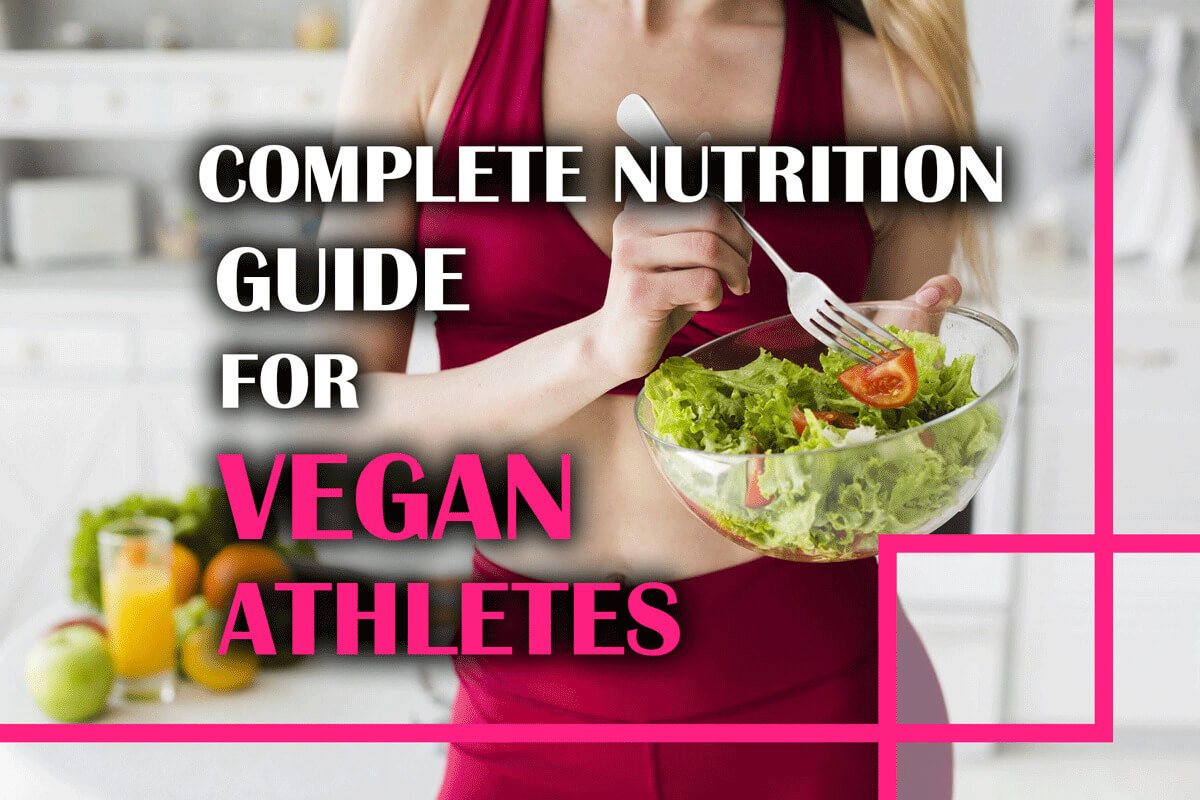
In conclusion…
A vegan diet can benefit athletes who just turned vegan and have chosen the vegan lifestyle.
As a vegan, I approve of this lifestyle because I have lots of experience with youth and even athletes that have gone vegan, and I can see evidence that their health and performance in sports events and daily life increased.
In this article, I have told you about veganism and its terms, and then I discussed the substances vegans and athletes need for the best performance.
I hope that with the experience and information that I have shared with you in the “Complete nutrition guide for vegan athletes / vegan nutrition guide for athletes” article, you can make the right choice, and I hope that all of the doubt that you have regarding on becoming a vegan athlete is gone by now.
If you have anything to add to this statement or another resource that would help vegan athletes, I would be glad to see them.
The only thing you have to do is to share all of your thoughts in the comment section or the contact form of the website.
Now I will answer your questions about vegan diet for athletes and nutrition for vegan athletes
Does a vegan diet affect athletes?
· Of course, it does. However, the vegan diet can increase the performance and hormone balance of the athletes; therefore, we can say that using a vegan diet is exceptional for athletes.
Are vegans stronger?
· Based on the diet they have set for themselves, we can say that on some occasions, vegans can be relatively more robust than individuals who consume animal-based food.
What should vegan athletes eat?
· The diet that vegan athletes have to embrace should have all of the nutrition, minerals, and vitamins all at once, and you have to keep in mind that there are some other substances as well that I have mentioned in the article.
Why do vegan athletes perform better?
· Imagine consuming all of the substances needed to become a stronger athlete and then eliminate all of the harmful effects of those foods; this is what exactly veganism is, so evidently, vegan athletes perform better.


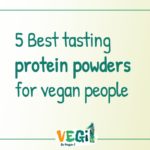
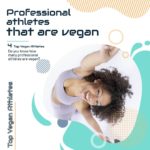
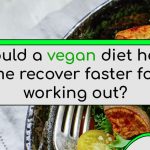
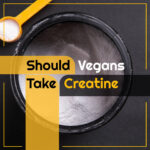
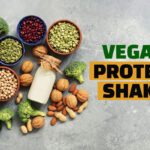
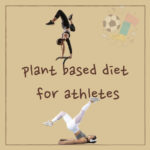
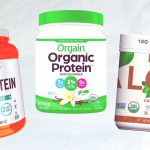

I used to be skeptical about the idea of a vegan diet for athletes, but I’ve since changed my mind. There are so many plant-based sources of protein and other nutrients that it’s easy to get everything you need to perform at your best.
I’m a runner, and I’ve noticed that I have more stamina and endurance since I started eating a vegan diet. I’m able to run longer distances without getting tired.
I’m a powerlifter, and I’ve actually found that I’m able to lift heavier weights since I switched to a vegan diet. I think it’s because I’m getting more clean, plant-based nutrients that my body needs to function properly.
There are so many amazing vegan athletes out there, proving that you don’t need meat to be successful. Some of my favorites include Lewis Hamilton, Venus Williams, and Patrik Baboumian.
I’ve been curious about this lifestyle for a while now, and your blog post has answered all of my questions. I’m definitely going to give it a try!
As a former competitive athlete, I can attest to the incredible performance potential of a well-planned vegan diet.
I’m amazed by the diversity of plant-based foods available to vegan athletes. From nutrient-rich beans and lentils to energizing fruits and vegetables, there’s an abundance of options to fuel our bodies for peak performance
I have more energy, I’m stronger, and I recover faster from workouts. I would highly recommend a vegan diet to any athlete looking for a competitive edge.
Your blog post has inspired me to learn more about the vegan lifestyle and consider making the switch myself. I’m grateful for your insights and the resources you provided.
I’ve been a vegan athlete for over 5 years now, and I’ve never felt better! I have more energy, I’m stronger, and I recover from my workouts faster. I highly recommend a vegan diet for all athletes!
If you’re a vegan athlete, I encourage you to keep going. You’re not alone, and there are plenty of people who support you.
A vegan diet can also help to boost your energy levels. Plant-based foods are packed with fiber, which helps to regulate your blood sugar levels and give you sustained energy throughout the day. This can be especially beneficial for athletes, who need to have a lot of energy to compete.
One of the biggest benefits of a vegan diet for athletes is that it can help to reduce inflammation. Inflammation is a major contributor to muscle soreness and fatigue. By reducing inflammation, a vegan diet can help you to recover faster from workouts and perform better in the long run.
People think that we don’t get enough protein or that we’re not getting all the nutrients we need. But the truth is, there are plenty of plant-based foods that are packed with protein and nutrients
I’m confident that the future of sports is vegan!
I’m a big fan of the documentary The Game Changers which profiles a number of elite vegan athletes. It’s really inspiring to see how well they’re able to perform on a plant-based diet. It’s definitely changed my perspective on what’s possible.
I’ve recently started experimenting with vegan protein powders and bars, and I’m really impressed with the quality and taste.
I’m excited to see the future of vegan sports nutrition. There are so many talented researchers and scientists working on developing new and innovative plant-based products that can help athletes reach their full potential.
I’ve been a vegan athlete for over five years now, and I’ve never felt better. I have more energy, I’m stronger, and I recover faster from workouts.
I am so grateful for this guide! It has helped me take my athletic performance to the next level.
This guide is a must-read for any vegan athlete. It is packed with information and practical advice that will help you achieve your fitness goals.
I appreciate that this guide is not just about food. It also includes information on hydration, supplements, and overall lifestyle habits. This holistic approach to nutrition is essential for any athlete, regardless of their diet.
I was initially skeptical about whether a vegan diet could provide me with the nutrients I need as an athlete, but this guide has convinced me otherwise. The information on plant-based protein sources is particularly helpful.
I’m so glad I found this guide! It has helped me make the switch to a vegan diet without sacrificing my athletic performance. I feel healthier and stronger than ever before.
I I feel more energized and have better recovery after workouts.
I’m not a vegan, but I always look for ways to improve my diet and performance. I’ve been incorporating more plant-based foods into my meals, and I’ve definitely noticed a difference.
I was always skeptical of vegan diets for athletes, but after doing some research, I’m convinced that they can be just as effective, if not more so, than traditional diets. There are so many amazing plant-based sources of protein, carbohydrates, and healthy fats that can help athletes reach their full potential.
The exercise recommendations are great. I’m looking forward to incorporating more physical activity into my routine.
Vegan cuisine is not about deprivation; it’s about embracing an abundance of plant-based flavors, textures, and nutrients that nourish our bodies and souls.
Embracing a vegan lifestyle has not only transformed my health but also opened my eyes to the profound connection between our food choices and the well-being of animals and the planet.
I used to think that I couldn’t perform at my best without meat and dairy, but I’ve since learned that a plant-based diet can actually give me an edge.
I used to worry about getting enough protein. But this guide has shown me that there are plenty of plant-based sources of protein to fuel my workouts. I’m no longer concerned about my protein intake, and I’m feeling great!
This comprehensive guide has been a game-changer for me as a vegan athlete. I’ve learned so much about how to fuel my body for optimal performance and recovery.
I was always worried about getting enough protein. This guide has helped me understand how to incorporate plant-based protein sources into my diet in a way that supports my training goals.
I’ve been a vegan for years, but I never really considered the importance of nutrition for athletic performance. This guide has opened my eyes to the power of plant-based eating for fueling my workouts and helping me reach my full potential.
This guide is packed with practical tips and advice that I can easily implement into my daily routine. I’ve already noticed a positive difference in my energy levels and overall performance.
I’m so grateful for the personalized meal plans and recipes included in this guide. They’ve made it so much easier for me to plan and prepare nutritious vegan meals that are tailored to my specific needs.
As a busy athlete, I appreciate the simple and quick meal ideas that are included in this guide. They’re perfect for fitting nutritious meals into my hectic schedule.
This guide has helped me debunk all the myths and misconceptions about veganism and athletic performance. I now know that a plant-based diet can be incredibly powerful for fueling my body and achieving my athletic goals.
This guide has given me the confidence to embrace a vegan lifestyle without compromising my athletic performance. I’m excited to continue learning and growing as a plant-powered athlete.
I highly recommend this guide to any vegan athlete looking to optimize their nutrition and reach their full potential. It’s an invaluable resource that has helped me transform my approach to fueling my body and achieving my athletic goals.